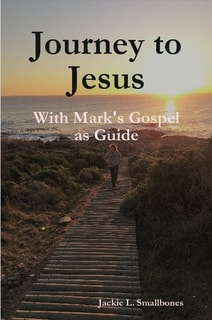|
Prepare to Listen. Praise our God, all you his servants, and all who fear him, small and great. (Rev 19:5)
Prayerfully Read Revelation 19:6; 11:16-17; 19:16 19:6 Then I heard what seemed to be the voice of a great multitude, like the sound of many waters and like the sound of mighty thunder-peals, crying out, ‘Hallelujah! For the Lord our God the Almighty reigns.’ 11:16-17 Then the twenty-four elders who sit on their thrones before God fell on their faces and worshipped God, singing, ‘We give you thanks, Lord God Almighty, who are and who were, for you have taken your great power and begun to reign.’ 19:16 On his robe and on his thigh he has a name inscribed, ‘King of kings and Lord of lords’. Prayerfully Wonder and Reflect “Then I heard what seemed to be the voice of a great multitude, like the sound of many waters and like the sound of mighty thunder-peals, crying out, ‘Hallelujah!’ ” It’s Easter, join the chorus and celebrate with your own loud ‘Hallelujah.’ The Hallelujah chorus is probably the best loved and most sung from Handel’s Messiah. The words from two different chapters in Revelation are perfect for this our most important day in the Christian calendar. “Mighty thunder-peals” seems appropriate for our hallelujah. Revelation is too often read to learn only about “end times.” As a result, we miss it’s many themes about wise living in Jesus today. One of those themes we miss, which we also reflected on yesterday, is worship. One of the many lessons Revelation teaches us is that worship is never me-centered. It’s always God-centered. The worship of the hymns and praise songs throughout Revelation teach good theology that can shape us in the right way of living if we let it. Singing the good theology in these words captured by Handel is good practice, reminding us that Jesus is indeed, King of kings and Lord of lords. No matter what happens, who wins political elections, Jesus reigns as King forever. Let this truth guide your life this Easter and always. Today rejoice with a loud hallelujah. Prayerfully Respond Hallelujah, Christ is risen! He is risen indeed! And all that I can do is thank you, Lord. Amen. Live obediently. Go forth in the dance of the merrymakers (Jeremaih 31:4) and join in the Hallelujah chorus.
0 Comments
Prepare to Listen. Worthy is the Lamb that was slaughtered.
Prayerfully Read Revelation 5:9-13 9They sing a new song: ‘You are worthy to take the scroll and to open its seals, for you were slaughtered and by your blood you ransomed for God saints from every tribe and language and people and nation; 10you have made them to be a kingdom and priests serving our God, and they will reign on earth.’ 11Then I looked, and I heard the voice of many angels surrounding the throne and the living creatures and the elders; they numbered myriads of myriads and thousands of thousands, 12singing with full voice, ‘Worthy is the Lamb that was slaughtered to receive power and wealth and wisdom and might and honour and glory and blessing!’ 13Then I heard every creature in heaven and on earth and under the earth and in the sea, and all that is in them, singing, ‘To the one seated on the throne and to the Lamb be blessing and honour and glory and might for ever and ever!’ 14And the four living creatures said, ‘Amen!’ And the elders fell down and worshipped. Prayerfully Wonder and Reflect Handel ended his Messiah with the 3 hymns about the Lamb in these verses. What caught your attention in them? Revelation 4 and 5 describe an amazing scene. Worshipers, in ever-widening concentric circles around the throne of God from a few close to the throne to a multitude of “every creature in heaven and on earth and under the earth and in the sea,” singing together their worship of the one who is worthy. The Lamb that was slaughtered is the only One worthy to receive this exuberant praise. All creation stands united around God’s throne and the Lamb, singing hymn after hymn. John the Baptizer got it right when he introduced Jesus as “the Lamb of God who takes away the sin of the world.” This scene in the Revelation of Jesus Christ (1:1), validates his title for Jesus. He is the Lamb slaughtered for the world. Jesus is worthy of worship because he was slaughtered, becoming powerless for us. When we worship Jesus today, we need to keep this scene in mind. Multitudes worshiping together “day and night without ceasing” (4:8). This means that we never begin worship. We join in with all creation and “saints from every tribe and language and people and nation.” We’re not alone with our tribe when we worship the Lamb. We stand side-by-side with people from all over the globe, whether we like them or not, sense their presence or not. Flying flags of every nation, not just one; standing in solidarity with every tongue, not just my own. This is what the Cross is about. This is what it means to behold the Lamb of God and to respond in a universal worship. How can your worship be inclusive of the saints from every tribe and language and people and nation? Prayerfully Respond To the one seated on the throne and to the Lamb be blessing and honor and glory and might for ever and ever! Amen. Live obediently. Worship the Lamb with all creation. Prepare to Listen. Thanks be to God, who gives us the victory through our Lord Jesus Christ.
Prayerfully Read 1 Corinthians 15:50-58 50What I am saying, brothers and sisters, is this: flesh and blood cannot inherit the kingdom of God, nor does the perishable inherit the imperishable. 51Listen, I will tell you a mystery! We will not all die, but we will all be changed, 52in a moment, in the twinkling of an eye, at the last trumpet. For the trumpet will sound, and the dead will be raised imperishable, and we will be changed. 53For this perishable body must put on imperishability, and this mortal body must put on immortality. 54When this perishable body puts on imperishability, and this mortal body puts on immortality, then the saying that is written will be fulfilled: ‘Death has been swallowed up in victory.’ 55‘Where, O death, is your victory? Where, O death, is your sting?’ 56The sting of death is sin, and the power of sin is the law. 57But thanks be to God, who gives us the victory through our Lord Jesus Christ. 58Therefore, my beloved, be steadfast, immovable, always excelling in the work of the Lord, because you know that in the Lord your labour is not in vain. Prayerfully Wonder and Reflect Five different pieces in Handel’s Messiah are from these verses. Did you hum any as you read? Verse 57, as sung by the choir, is exuberant: “But thanks [thanks, thanks] be to God, who gives us the victory through our Lord Jesus Christ.” It doesn’t matter what has gone before, the struggles, the ups and downs, the defeats or losses, even death and the grave. It doesn’t matter because God gives the victory through Jesus Christ our Lord. Victory isn’t about superficial and temporary winnings. Victory is inheriting the Kingdom of God, winning over “flesh and blood,” that is, “humanity in its present corruptible state.”[1] Our corrupt human state means access to God’s Kingdom is impossible. But in Christ we have access to God! Thanks, thanks, thanks be to God. So how should we now live, still hampered by our corruptible human state? Paul tells us: “be steadfast, immovable, always excelling in the work of the Lord, because you know that in the Lord your labor is not in vain.” There is the Lord’s work to be done. We do it, not half-heartedly, but to the best of our ability so that we excel. It’s never easy, often discouraging, therefore be steadfast, immovable, always excelling. Sometimes we may feel we’ve wasted our time and labored in vain. Hear again Paul’s encouragement, “in the Lord your labor is not in vain.” As Wright states, “What we do in the present is not wasted. It will all be part of the eventual structure, even though at the moment we have no idea how.”[2] What encouraged you in these verses and how can you live that today? Prayerfully Respond Lord, you have given us the victory. Thanks, thanks, thanks. When it seems my labor has been in vain, keep me focused, with gratitude, on the victory won in you. Amen. Live obediently. Be steadfast, immovable, always excelling in the work of the Lord. [1] Wright, N. T. Into the Heart of Romans. Grand Rapids, MI: Zondervan Academic. 2023, p. 70. [2] Wright, N. T. Simply Jesus. HarperOne 2011, p. 211. Prepare to Listen. Even so in Christ shall all be made alive.
Prayerfully Read I Corinthians 15:20-23 20But in fact Christ has been raised from the dead, the first fruits of those who have died. 21For since death came through a human being, the resurrection of the dead has also come through a human being; 22for as all die in Adam, so all will be made alive in Christ. 23But each in his own order: Christ the first fruits, then at his coming those who belong to Christ. Prayerfully Wonder and Reflect What tugged at your heart strings as you read these verses? But in fact…. Another of Paul’s significant buts, a response to those who deny the resurrection (vv. 12-19). It demands that we sit up and attend. Paul confidently states, “But in fact Christ has been raised.” He insists “that a whole new age has dawned with the resurrection of Jesus Christ from the dead.”[1] The “new age” is now, ours to be experienced because we’ve been raised with Christ and made brand new. Death no longer has us in its grip. Paul labors this truth in v. 21, one of my favorite choruses in Handel’s Messiah. The choir begins in a soft, slow, depressing tone, “Since by man came death.” Suddenly the sombre mood changes to a loud burst of joyous praise, “by man came also the resurrection of the dead.” The joyous music emphasizes the hope we have as members of Christ’s body—resurrection, not heaven when I die. Christian hope “is not wishful thinking or mere blind optimism. It is a mode of knowing, a mode within which new things are possible, options are not shut down, new creation can happen.”[2] I’ll confess that I don’t fully understand resurrection hope that changes the past, supports us in the present and promises a glorious future. I grew up repeatedly hearing that the Christian hope is heaven when I die. But that’s a hope only for the future. I need a hope for the now. Resurrection is that hope. If we died in Adam, we’re made alive in Christ, alive to live as people who know and experience newness. We are, after all, a new creation. How can you live today alive in Christ? Prayerfully Respond Lord, help me grasp more fully the hope of the resurrection for the now, so that I live into the new possibilities you make available. Amen. Live obediently. Alive in Christ. [1] Prior, David. The Message of 1 Corinthians. Downers Grove, IL: Inter-Varsity Press. 1985, p. 266. [2] Wright, N. T. Surprised by Hope. HarperOne. 2008, p. 72. Prepare to Listen. Commit your cause to the LORD.
Prayerfully Read Psalm 22:1-8 1My God, my God, why have you forsaken me? Why are you so far from helping me, from the words of my groaning? 2O my God, I cry by day, but you do not answer; and by night, but find no rest. 3Yet you are holy, enthroned on the praises of Israel. 4In you our ancestors trusted; they trusted, and you delivered them. 5To you they cried, and were saved; in you they trusted, and were not put to shame. 6But I am a worm, and not human; scorned by others, and despised by the people. 7All who see me mock at me; they make mouths at me, they shake their heads; 8‘Commit your cause to the LORD; let him deliver-- let him rescue the one in whom he delights!’ Prayerfully Wonder and Reflect What caught your attention in these verses? This is the only lament psalm that many Christians ever hear because it’s often read during Holy Week, a reminder of Jesus’ agonized cry from the cross. It’s a gut-wrenching cry: “My God, my God, why have you forsaken me?” Unlike other lament psalms, this one has no introduction or formal approach to God, and neither is it polite and respectful. The English text, “the words of my groaning,” is too tame. “These words,” writes Tanner, “are expressed in the raspy scream of one in distress.”[1] And yet, this is the cry of one who is intimate with God, a cry of one who knows they’re loved by God and knows God will hear, even if God appears to remain aloof. The pray-er may feel utterly helpless, but knows he will be listened to and taken seriously. He knows he’s not forsaken, even though it feels like it. The first verse isn’t the only link to Jesus in this psalm. Handel, early in the second part of the Messiah, draws our attention to two other links, verses 7 and 8. Jesus was mocked even as he hung in agony on the cross. Some said, “He trusts in God; let God deliver him now, if he wants to; for he said, ‘I am God’s Son.’ ”[2] Sadly, it’s common to mock a sufferer or a weaker person. We see it around us all the time. And even sadder, many who mock, sometimes in cruel words, claim to be Christians. The psalmist felt the brunt of their cruelty and so did Jesus. He took it upon himself on the cross. Have you ever prayed verse 1? What happened in the end? Prayerfully Respond Lord, for all those who are screaming to you today because people are cruel and they feel forsaken, may they experience your loving presence. Amen. Live obediently. Cry your lament and keep trusting. [1] Tanner in deClaissé-Walford N., Jacobson R, and Tanner, B. The Book of Psalms. Grand Rapids, MI: William B. Eerdmans Publishing Company. 2014, p. 233. [2] Matthew 27:43. Prepare to Listen. This is my blood of the covenant, which is poured out for many.
Prayerfully Read Mark 14:22-25 22While they were eating, he took a loaf of bread, and after blessing it he broke it, gave it to them, and said, ‘Take; this is my body.’ 23Then he took a cup, and after giving thanks he gave it to them, and all of them drank from it. 24He said to them, ‘This is my blood of the covenant, which is poured out for many. 25Truly I tell you, I will never again drink of the fruit of the vine until that day when I drink it new in the kingdom of God.’ Prayerfully Wonder and Reflect Anything surprise or shock you in this familiar story? In his final Passover, Jesus practiced its traditional elements, but not all of them. As per tradition, he, their leader, blessed the bread and gave thanks for the cup, then shared it with his disciples. To eat and drink what was offered meant becoming participants, fully involved with the giver both in the blessing and also in whatever else he said. But then Jesus radically departed from tradition. Instead of retelling the story that defined Passover’s meaning—Israel’s deliverance from Egyptian oppression—he told a new story. The bread and wine will forever be symbolic of his body broken and his blood poured out for many. Participating in the meal with him meant participating in his suffering and death. When the disciples ate and drank what Jesus blessed and gave, they were effectively saying, “Yes, we’re with you, even in your sufferings.” But sadly, they weren’t. They still hoped Jesus would conquer Rome and liberate them from oppression. They stubbornly refused to accept his warnings about his suffering and death, and their betrayal. Thus, Jesus concluded the meal with a disturbing warning, “Truly I tell you, I will never again drink of the fruit of the vine until that day when I drink it new in the kingdom of God.” He looked forward to the fulfillment of God’s Kingdom on earth as in heaven. Their ancient story had been redefined and Jesus commanded them to now look forward rather than backward. In Communion we look back on what Jesus did so that we can look forward in hope of the newness he brings. What do you look forward to? Prayerfully Respond Lord, sometimes I’d rather dwell on what’s behind than looking forward in hope to your freeing grace. Grant me grace and mercy to persevere to the end. Amen. Live obediently. Look forward in hope, not backwards in despair. Prepare to Listen. If you know these things, you are blessed if you do them.
Prayerfully Read John 13:12-17 12After he had washed their feet, had put on his robe, and had returned to the table, he said to them, ‘Do you know what I have done to you? 13You call me Teacher and Lord—and you are right, for that is what I am. 14So if I, your Lord and Teacher, have washed your feet, you also ought to wash one another’s feet. 15For I have set you an example, that you also should do as I have done to you. 16Very truly, I tell you, servants are not greater than their master, nor are messengers greater than the one who sent them. 17If you know these things, you are blessed if you do them. Prayerfully Wonder and Reflect How would you answer Jesus’ question: “Do you know what I have done to you?” A student once argued that the primary symbol of Christianity should be a basin and a towel, not a cross. He had a point. Jesus picked up and used a basin and towel, the tools of a servant not a Lord, to wash his disciples’ feet. The basin and towel symbolize the way followers of Jesus must live, as servant to all, willing to do the lowliest of tasks. That’s not what most of us want. We’d rather be warriors, fighting a noble cause, or in positions of influence and power. We don’t want to be servants, doing tasks few acknowledge or even see. But we’re called to the often unseen and unpaid servant roles, putting the needs and interests of others before our own. Jesus didn’t give lists of theological propositions to believe and moral principles to obey. Instead, he showed by example how we’re to live. He acted as a servant and lovingly washed his disciples’ feet. He then commanded his disciples, which includes us today, to follow his example. It’s that simple, “take up the basin and the towel” and serve one another, however menial and unnoticed by others. Jesus will notice and he promised a blessing to those who do: “If you know these things, you are blessed if you do them.” So perhaps we should include the basin and towel in our images of what Christianity stands for, but not as the primary symbol and or as replacement for the cross that is central to our faith. To whom can you be a servant today and how? Prayerfully Respond Your call, Lord Jesus, isn’t to be great or in positions of power and authority, but to take on the role of servant. Help me today to see where I can serve you by serving another so that I may be a reflection of you to the world. Amen. Live obediently. Take up “the basin and the towel.” Prepare to Listen. Blessed is the one who comes in the name of the Lord!
Prayerfully Read Mark 11:1-11 When they were approaching Jerusalem, at Bethphage and Bethany, near the Mount of Olives, Jesus sent two of his disciples 2and said to them, ‘Go into the village ahead of you, and immediately as you enter it, you will find tied there a colt that has never been ridden; untie it and bring it. 3If anyone says to you, “Why are you doing this?” just say this, “The Lord needs it and will send it back here immediately.”’ 4They went away and found a colt tied near a door, outside in the street. As they were untying it, 5some of the bystanders said to them, ‘What are you doing, untying the colt?’ 6They told them what Jesus had said; and they allowed them to take it. 7Then they brought the colt to Jesus and threw their cloaks on it; and he sat on it. 8Many people spread their cloaks on the road, and others spread leafy branches that they had cut in the fields. 9Then those who went ahead and those who followed were shouting, ‘Hosanna! Blessed is the one who comes in the name of the Lord! 10Blessed is the coming kingdom of our ancestor David! Hosanna in the highest heaven!’ 11Then he entered Jerusalem and went into the temple; and when he had looked around at everything, as it was already late, he went out to Bethany with the twelve. Prayerfully Wonder and Reflect What memories do you have around this story? We call this story, “Jesus’ triumphal entry.” But the story Mark tells is disappointing. There’s nothing triumphal about it. Over half the story is devoted to Jesus’ instructions to two disciples about commandeering a donkey, not the usual beast of choice to carry a king in a victory parade. The crowd tried to make it triumphal, hailing Jesus as king with verses from Psalm 118. They hoped Jesus was about to end Roman oppression. I wonder whether they noticed that Jesus remained both silent and passive on the donkey. Did you notice? The story ends in an anticlimax. Jesus entered the temple, looked around and left because it was already late. Too late for what? Mark doesn’t say. If a presidential candidate today was given the acclaim Jesus received, they’d ride the wave all the way to victory, no matter how late. Perhaps that’s what Jesus’ disciples and the crowd expected. Instead, Jesus left Jerusalem for no other reason that it was already late. What strikes me in this story is Mark’s insistence that Jesus isn’t the king/ruler we expect or maybe even want. We’d never vote for him to rule our country. His ways are the antithesis of our ways and if we choose to follow him we must reject the populist ways of the world for the gentle man silently riding a beast of burden, which is a symbol of peace and service, not force and violence. Behold the Lamb of God. Based on this story, how would you describe Jesus? What does it suggest about how you should follow him? Prayerfully Respond Lord Jesus, help me be more like you, focused on humility and peace and a determination to achieve the goal God’s way, not the populist or expected way. Amen. Live obediently. Follow the Gentle Jesus. Prepare to Listen. I know that my Redeemer lives.
Prayerfully Read Job 19:23-27 23‘O that my words were written down! O that they were inscribed in a book! 24O that with an iron pen and with lead they were engraved on a rock for ever! 25 For I know that my Redeemer lives, and that at the last he will stand upon the earth; 26and after my skin has been thus destroyed, then in my flesh I shall see God, 27whom I shall see on my side, and my eyes shall behold, and not another. My heart faints within me! Prayerfully Wonder and Reflect Usually in Holy Week the focus is on Jesus’ trial and crucifixion. However, since Handel’s Messiah, concludes with pieces about Christ’s triumph, we’ll focus on that from now through Easter. The soprano sings, “I know that my Redeemer liveth.” These confident words in Job are surrounded by words of lament for the total forsakenness Job experienced. God had taken everything from him and then remained silent. His friends repeatedly accused him of great sin and demanded he repent. In his despair Job made this hope-filled claim: “I know that my Redeemer lives.” He didn’t have resurrection in mind. He hoped for the vindication of his innocence in this life. But that doesn’t mean we can’t now read into these words the story of Jesus’ resurrection and be encouraged in the hope of our own resurrection. What Job most desired was to see God in the now. Three times in vv. 26 & 27 he states this. He wanted to see God, not after his death, but “in my flesh I shall see God,” and “whom I shall see for myself,” (a more accurate translation than the NRSV’s “whom I shall see on my side”). He wanted to see God for himself, because seeing is more visceral and real, harder to doubt than hearing. And for this seeing, he said, “My heart faints within me!” Such was his longing to see his Redeemer. At the end of Job, when God finally spoke and revealed himself, Job testified, “I had heard of you by the hearing of the ear, but now my eye sees you” (42:5). The suffering, despair, loneliness of the past was over, Job was vindicated, and could say, now my eye sees you. What does your heart faint for? Prayerfully Respond Lord, I pray that I may know you more clearly, love you more dearly, and follow you more nearly, day by day. Amen. (From the Prayer of Saint Richard of Chichester.) Live obediently. Know with certainty your Redeemer lives. Prepare to Listen. In all these things we are more than conquerors through him who loved us.
Prayerfully Read Romans 8:31-34 31What then are we to say about these things? If God is for us, who is against us? 32He who did not withhold his own Son, but gave him up for all of us, will he not with him also give us everything else? 33Who will bring any charge against God’s elect? It is God who justifies. 34Who is to condemn? It is Christ Jesus, who died, yes, who was raised, who is at the right hand of God, who indeed intercedes for us. Prayerfully Wonder and Reflect “If God is for us, who is against us?” It’s a rhetorical question and we know the answer: No one! But then bad things happen, and it feels like the whole world is against us and winning. Have you ever experienced this? What was it like? Christians aren’t exempt from stuff being against us, such as hardship, distress, persecution, famine, nakedness, peril, sword (violence) (v. 35). As Tish Warren learned, “You cannot trust God to keep bad things from happening to you.”[1] Bad things will and do happen to faithful followers of Jesus. And that’s when we have no option but to trust that God is for us and that those against us will ultimately fail. The solo, “If God before us,” near the end of the Messiah is sung with an assurance of God’s power to both keep us in, and take us through the bad times. In case we didn’t get it in that first question, Paul asks two more in these verses: “Who will bring any charge against God’s elect?” And, “Who is to condemn?” A lot of people try. They say things like, ‘You call yourself a Christian and you did that?’ ‘Aren’t Christians supposed to be like Jesus?’ And maybe sometimes they’re right, we behaved badly. Most often, a voice in my head condemns me, accusing me of not being good or loving enough. If that happens to you too, remember Paul’s teaching—God justifies, makes us acceptable, not our works; Jesus died, was raised and now “intercedes for us.” Jesus is at God’s right hand praying for you right now. Can you trust him now? What comforted or surprised you in these words of Paul this time? Prayerfully Respond For all those today who are discouraged because so much is against them, or condemning them, I pray to you O Lord. Amen. Live obediently. Live as one who trusts God is for you. [1] Harrison Warren, T. Prayer in the Night. Downers Grove, IL: IVP, 2021, p. 22. |
AuthorWrite something about yourself. No need to be fancy, just an overview. Archives
March 2024
Categories |
- Home
- LIVE THE STORY
- Read Your Bible
- Spiritual Practices
-
Sacred Sagas
- Smallbones Saga 2022
- You just need to be thirsty
- Can these bones live?
- Power the Jesus' Way
- Response to Jan 6
- Binding the Strong Man
- Come, everything is ready
- Help my Unbelief (Mk 9:14-29)
- Off with your shoes
- Psalms and prayer
- Praying in Ugly Times
- The Messiah we Want
- Why I can't vote for Trump
- Worship & Discipleship
- About Me
- Contact
Books Available |
RETREAT OPTIONS |
Let the redeemed of the LORD tell their STORY
(Psalm 107:2 (TNIV)) © 2016 LiveIntoBeauty. All Rights Reserved.
|










 RSS Feed
RSS Feed



